Books
Books
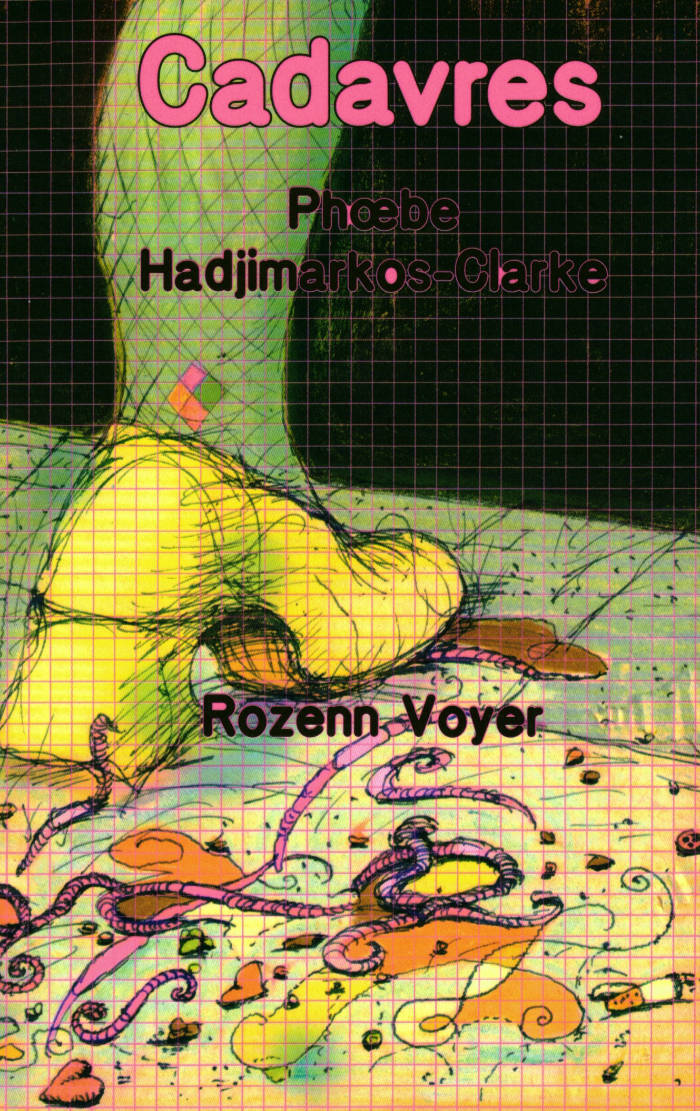
Cadavres
Phœbe Hadjimarkos-Clarke, Rozenn Voyer
Cadavres rassemble 13 poèmes écrits par Phœbe Hadjimarkos - Clarke sur les errances dans les villes âpres, les campagnes humides et les maisons branlantes. Les poèmes sont accompagnés de 15 dessins de Rozenn Voyer.

Monsieur Dubois, dont on fait les flûtes
Imprimé par Élie Partouche à l'Association Presse Offset à Paris et sur internet. Couverture dessinée par Traduttore, tradiore, repiquée sur presse typographique par Grégorie Sourice à Marseille. Le tout relié au bar à bious. Une publication à l'initiative de Louka Butzbach et soutenue par le complexe bancaire Art Majeur, 2022.
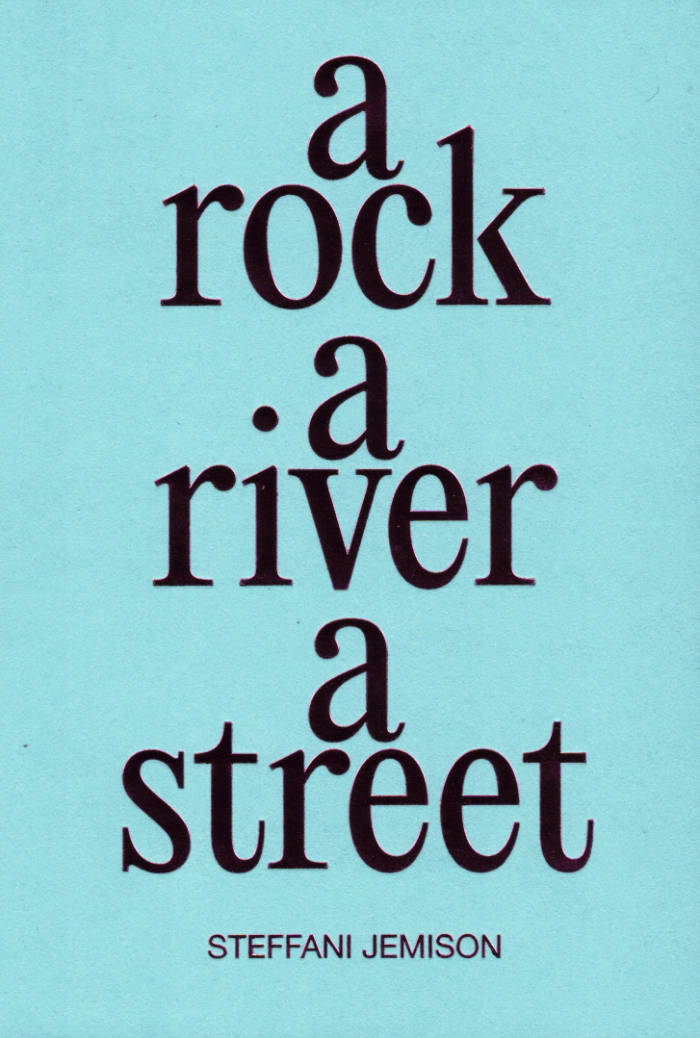
A Rock, a River, a Street
An experimental novella about the bounds of the self and the many forms of embodied expression.
Where does your body end and the world begin? How do you locate the limit between your self and others? A Rock, A River, A Street follows a young, Black woman who lives at the hazy border between Brooklyn and Queens in the not so distant present. As she rides the subway, walks around her neighborhood, visits the doctor, watches movies, attends dance class and tries to heal her body, we are brought into her conflicted relationship with language, as she recalls formative experiences from her childhood and absorbs the world around her. Acutely conscious of the soft, responsive nature of her physical self, and pushed and pulled by forces she cannot control, the narrator is vulnerable, terrifyingly open. Everything and everyone leaves an impression. Brooklyn-based artist Steffani Jemison (born 1981) moves deftly across narrative genres and styles in this novella, as she interrogates the boundedness of the self, the possibilities of plurality and the limits of performance.

University of California Press
Dictee (Second Edition, Reissue, Restored)
Dictee is the best-known work of the multidisciplinary Korean American artist Theresa Hak Kyung Cha. This restored edition features the original cover and high-quality reproductions of the interior layout as Cha intended them. Produced in partnership with the Berkeley Art Museum and Pacific Film Archive, this version of Dictee faithfully renders the book as an art object in its authentic form.
A formative text of modern Asian American literature, Dictee is a dynamic autobiography that tells the story of several women: the Korean revolutionary Yu Guan Soon, Joan of Arc, Demeter and Persephone, Cha's mother Hyung Soon Huo (a Korean born in Manchuria to first-generation Korean exiles),and Cha herself. Cha's work manifests in nine parts structured around the Greek Muses. Deploying a variety of texts, documents, images, and forms of address and inquiry, Cha links these women's stories to explore the trauma of dislocation and the fragmentation of memory it causes. The result is an enduringly powerful, beautiful, unparalleled work.

Sonic Meditations
Pauline Oliveros (1932-2016) Pauline Oliveros' life as a composer, performer and humanitarian was about opening her own and others' sensibilities to the universe and facets of sounds. Her career spanned fifty years of boundary dissolving music making. In the '50s she was part of a circle of iconoclastic composers, artists, poets gathered together in San Francisco. In the 1960's she influenced American music profoundly through her inclusive work with improvisation, meditation, electronic music, myth and ritual.
She founded 'Deep Listening(R), ' which came from her childhood fascination with sounds and from her works in concert music with composition, improvisation and electro-acoustics. She described Deep Listening as a way of listening in every possible way to everything possible to hear no matter what you are doing. Such intense listening includes the sounds of daily life, of nature, of one's own thoughts as well as musical sounds. 'Deep Listening is my life practice, ' Oliveros explained, simply. Oliveros founded Deep Listening Institute, formerly Pauline Oliveros Foundation, now the Center For Deep Listening at Rensselaer, NY. Her creative work is currently disseminated through Pauline Oliveros Publications and the Ministry of Maåt, Inc

Eros the Bittersweet: An Essay
Anne Carson's remarkable first book about the paradoxical nature of romantic love. Since it was first published, Eros the Bittersweet, Anne Carson's lyrical meditation on love in ancient Greek literature and philosophy, has established itself as a favorite among an unusually broad audience, including classicists, essayists, poets, and general readers.
Beginning with the poet Sappho's invention of the word "bittersweet" to describe Eros, Carson's original and beautifully written book is a wide-ranging reflection on the conflicted nature of romantic love, which is both "miserable" and "one of the greatest pleasures we have."

Borrowing Positions. Role-Playing Design & Architecture. BOOTLEG
Ott Kagovere, Kaisa Karvinen and 1 more
A speculative book reflecting on design and architecture centred LARPs (Live Action Role-Play) organised by the Trojan Horse collective. The book is an exploration of Live Action Role-Play as a design and architecture research tool. By inviting the reader to try on different characters, switch roles and reconsider their everyday practices, the book aims to approach issues such as identity, performativity, gender, colonialism, care and fear in the context of architecture, design and urban planning.
Texts by Ana Yin Aiwen, Teo Ala-Ruona, Michael A. Fowler, Ott Kagovere, Kaisa Karvinen, Tommi Vasko.
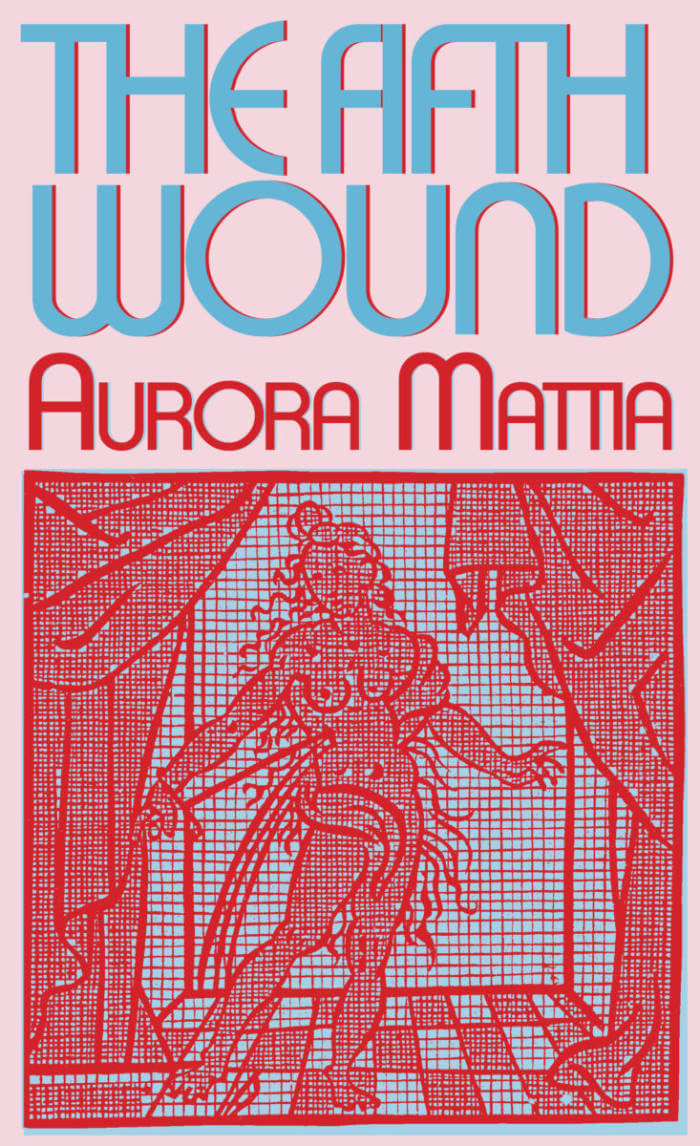
The Fifth Wound
A baroque work of intimate myth exploring one woman's interdimensional search for beauty and embodiment, through kaleidoscopic renderings of hospital corridors, brutal breakups, and passionate romance.
The Fifth Wound is a phantasmagorical roman à clef about passion as a way of life. In one dimension, this is a love story—Aurora & Ezekiel—a separation and a reunion. In another, we witness a tale of multiple traumatic encounters with transphobic violence. And on yet another plane, a story of ecstatic visionary experience swirls, shatters, and sparkles. Featuring time travel, medieval nuns, knifings, and t4t romance, The Fifth Woundindulges the blur between fantasy and reality. Its winding sentences open like portals, inviting the reader into the intimacy of embodiment—both its pain and its pleasures.
Named a must read book of 2023 by Nylon, BookRiot, Vulture, The Millions, and Ms. Magazine!
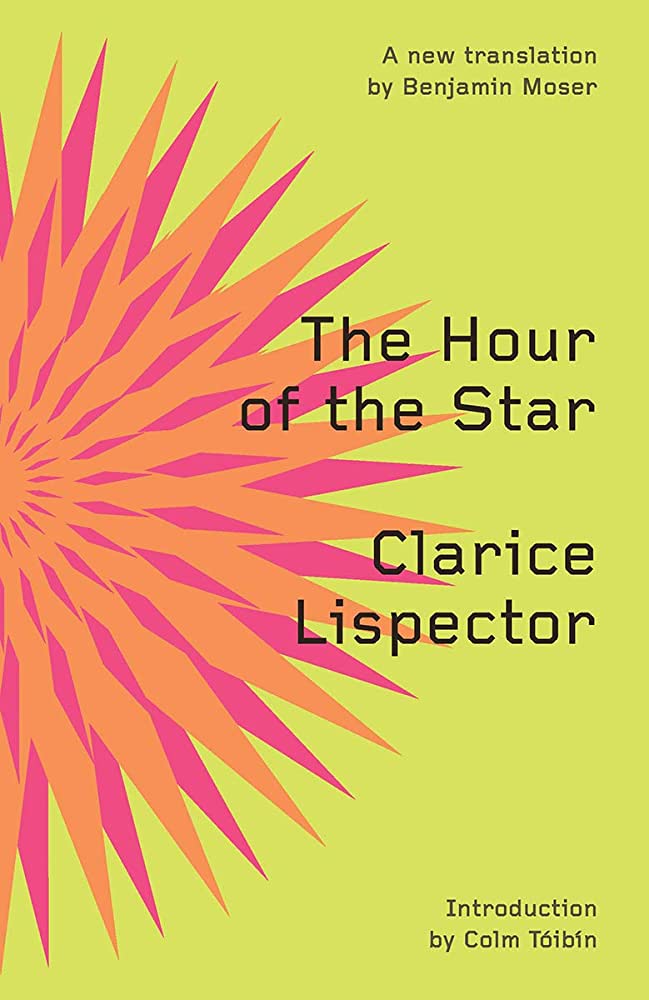
The Hour of the Star
The devastating final work by Brazil’s greatest modern writer, The Hour of the Star tells the haunting tale of Macabéa—a typist who lives in the slums of Rio—underfed, sickly, and unloved, yet inwardly free.
Translated from the Portuguese by Benjamin Moser. With a contribution by Paulo Gurgel and Valente Colm Tóibín.

Girls Like Us #5 - Play
Marnie Slater, Katja Mater and 2 more
In a world with too many choices and too little time to explore, play is an excellent strategy. Objects, roles, bodies, settings – anything can be transformed in play. Playing across time, space, architecture, beds, houses, lives, papers. Suddenly a chair is a plane is a stroy is an animal is an avatar is a new reality. Making up worlds, filming them. Surfing warm and cold waves. Playing with identities. Playing en masse. Playing to be free.
A digital conversation with performance artist boychild, writer Chris Kraus on beer brewing and BDSM, music producer and artist Fatima Al Qadiri on her 1989 haircut, Californian surfers by Eve Fowler & Mariah Garnett, curator Annick Kleizen recapturing the artist residency circuit from a hammock in Brazil, artist Jesse Darling paraphrasing Drake, musicians The Knife dissecting their communal experiment ‘Shaking The Habitual’ through the eyes of their collaborators.
Featuring Boychild, Chris Kraus, Wu Tsang, Jesse Darling, Fatima Al Qadiri, Jam Rostron, Marit Östberg, Hanne Lippard, Kapwani Kiwange, Maroussia Rebecq, Kenji Minogue, Mariah Garnett, Eve Fowler, Lily van der Stokker, Rachel de Joode, Mademoiselle Yulia, Katja Mater, Sarah Forbes Keough, Annick Klezine, Emily Roysdon, Analisa Teachwroth, Jess Arndt, Martin Falck, Laura Davis, Mandy Pernell, Amy Sillman and Jesper Strombäch Eklund.

Girls Like Us #9 - Dance and dancing
Marnie Slater, Katja Mater and 2 more
DANCE AND DANCING explores the New York dance scene – past, present and future. It’s our first ever guest-edited issue compiled by New York based writer and artist Emma Hedditch.
Featuring: Mariana Valencia, Cynthia Oliver, Marlies Yearby, Laurie Carlos, Chrysa Parkinson, devynn emory, the skeleton architecture, Discwoman, Svetlana Kitto, Jonah Groeneboer, Dona Ann McAdams, Lydia Okrent, Kim Brandt, kara lynch, Effie Bowen, Mary Manning, Res, Leah Gilliam, Amelia Bande, Luciana Achugar, Emily Wexler, Ayo Janeen Jackson, Suzan D. Polat, Mina Nishimura, Ursula Eagly, Emmakate Geisdorf, Angie Pittman, Lerato Khathi, Yvonne Meier and Aunts.
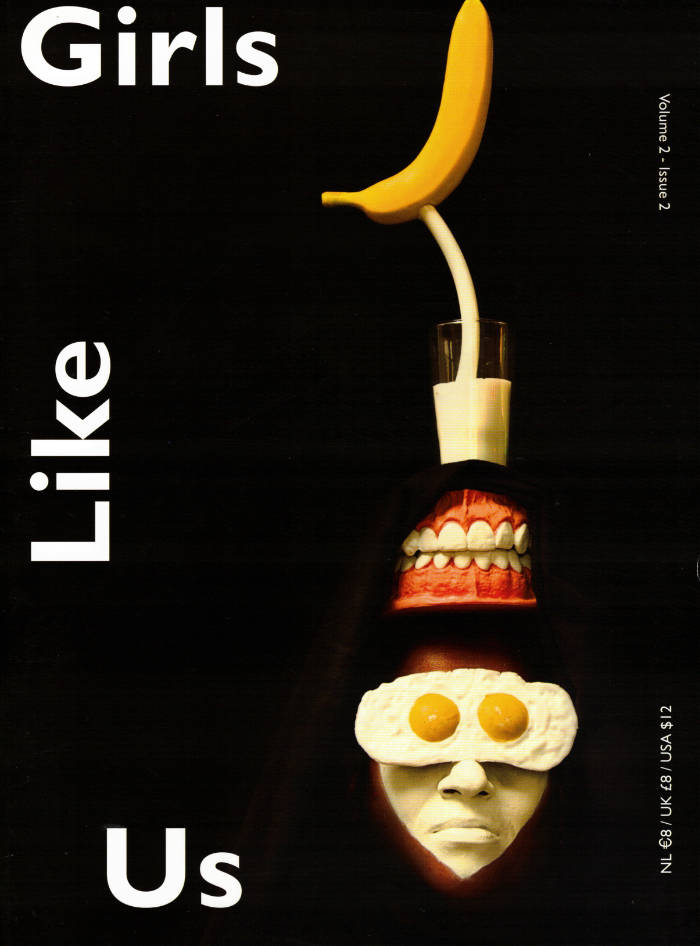
Girls Like Us #2 — Issue 2
Marnie Slater, Katja Mater and 2 more
The second issue of the Amsterdam lesbian arts quarterly with newly appointed co-editor Vela Arbutina at the helm.
Features include Vava Dudu and Theo Mercier, Tavi Gevinson and Diane Pernet, Keren Cytter and Dafna Maimon, Lauren Flax and Lauren Dillard, Kaisa Lassinaro, Matthew Lutz-Kinoy, Leilah Weinraub, Benjamin A. Huseby, Eline McGeorge, Janis Pönisch, Anie Stanley, Andrea Ferrer, Devrim Bayar.
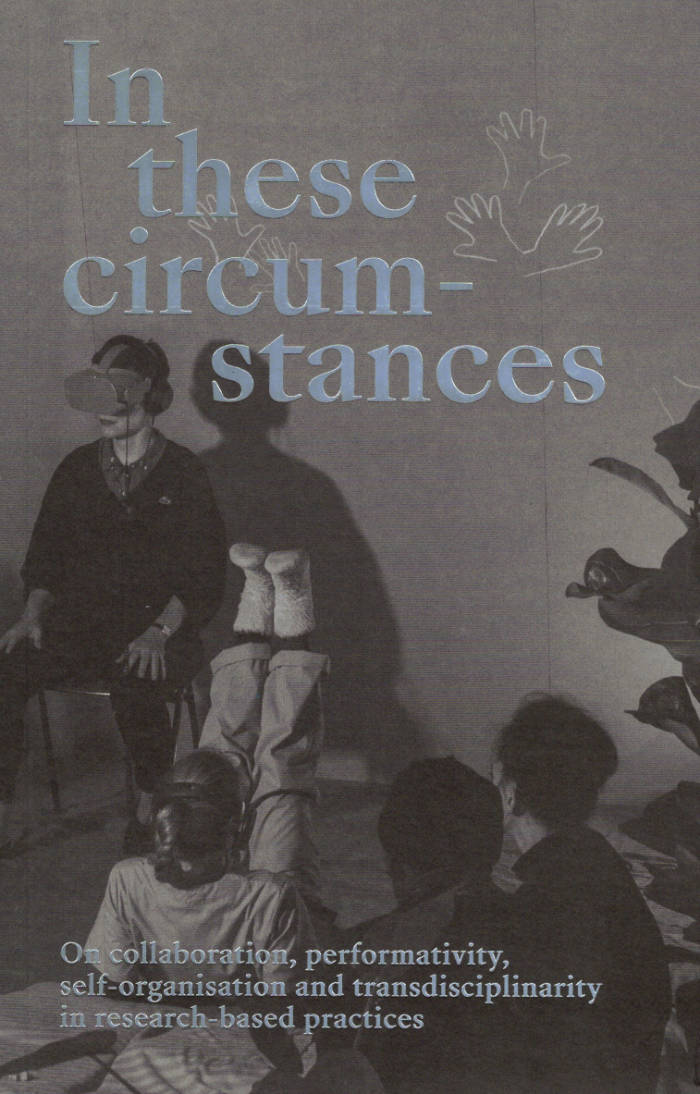
In these circumstances
Philippine Hoegen, Lilia Mestre
In these circumstances: On collaboration, performativity, self-organisation and transdisciplinarity in research-based practices assembles curatorial, artistic and pedagogical practices inspired by a.pass: an inter- national artistic and educational research environment focusing on performativity and scenography.
This book discloses a history of the methods of artistic research in the context of the academisation of art education, and an abrasion of the once unbridled scene of artist-run organisations in Northern Europe. There are 35 contributions, many of them collaborative, ranging from concrete projects to inter- rogative speculations about artistic research. It aims to demonstrate how artistic research operates institutionally through a complex intertwinement of practices and how a.pass, over the past 14 years, has carved out a space for artistic research to imbricate in fields of both art and education, and stir the sediments of disciplinary enclosures.

the she
‘the she’ compares texts by Virginia Woolf with their French translation, reproducing parts of the novelles ‘The String Quartet' & ‘Blue and Green’ and the novel ‘The Years’. Of the novellas, she kept only the articles the in English and le, la, les in French, exactly as they appear in the editions. Of the novel, only the pronouns she in English and elle in French remain.
The publication includes identical two booklets, one bound and one unbound, both uncut, referring to old books which were often sold bound but uncut.
Offset printing. Printed by Cultura, Wetteren
Edition of 123 numbered copies
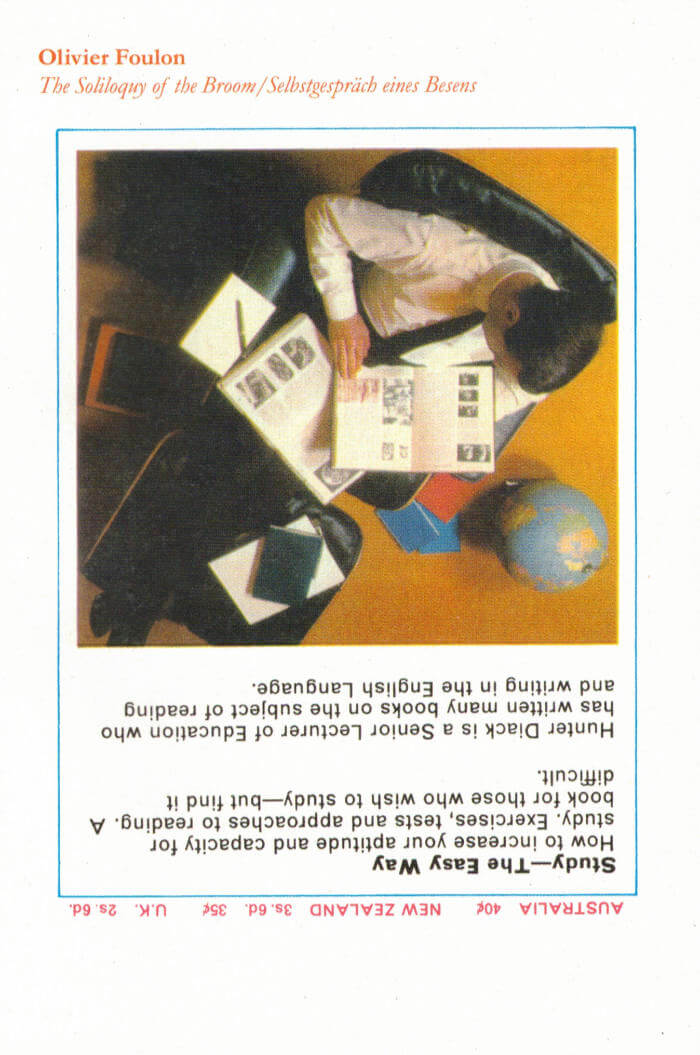
The Soliloquy of the Broom
'The Soliloquy of the Broom' is a transcript of a conversation between Olivier Foulon and Michael Krebber on their mutual interest in Gustave Courbet, taking place in Cologne on December 8, 2008. The publication follows from the work Foulon made as part of If I Can’t Dance’s Edition III – Masquerade (2008–10), which focused on the concept of masquerade in relation to painting. In a 16mm film Foulon brought together four paintings of Courbet that are each different versions of the portrait Jo, the Beautiful Irish Girl (1865–66). His film visualizes not only early forms of mass production in art, but also reflects on the concept of a model that is used as a template for a painting that itself then becomes the model for another.
The project Masquerade took place at Overgaden, Copenhagen; De Appel Arts Centre, Amsterdam; Sala Rekalde, Bilbao; Project Arts Centre, Dublin and Van Abbemuseum, Eindhoven, 2008–2010. The cover of the book is a facsimile of the invitation card of the exhibition The Soliloquy of the Broom / Selbstgespräch eines Besens at the Kölnischer Kunstverein in Cologne, August 22 – September 28, 2008. La vague was written for the exhibition Par delà le B. et le M. aussi at the Musée Wellington in Waterloo, September 13 – November 30, 2008. Produced by If I Can’t Dance, I Don’t Want To Be Part Of Your Revolution, Amsterdam
Edition of 500 copies

A propos du CD-ROM Immemory de Chris Marker
French/English paperback with essays by Raymond Bellour and Laurent Roth on Chris Marker's Immemory.
'Chris Marker's CD-ROM Immemory is most easily imagined as a digitally stored attic room, divided into zones of memories. Those zones show (fragments of) photographs, engravings, paintings, films, texts, edited or annotated, which are plotted along a number of virtual trajectories that one can traverse: Le Voyage, Le Musée, La Mémoire, La Poésie, La Guerre, La Photo, Le Cinéma.
The central question, borrowed from Marcel Proust, is also the heading of the La Mémoire section: "Qu'est-ce qu'une madeleine?" What charges something with the affect of memory? Why is that one detail, that one book, poem or painting the emotional and essential among all others?' (Witte Raaf 1999)
Yves Gevaert publisher, co-published with the Centre Georges Pompidou, Paris

Wind & De wilgen - Wind & The Willows
Wind & De Wilgen (English/Dutch) was designed by Lawrence Weiner and published on the occasion of the execution of his work Wind & The Willows in the Openluchtmuseum voor beeldhouwkunst Middelheim, Antwerp.
Lawrence Weiner was an American artist and one of the central figures in the formation of conceptual art in de 60s. His work was strongly language-based and often took form in typographic texts, also visible in this artist book.
Edition of 1000 copies
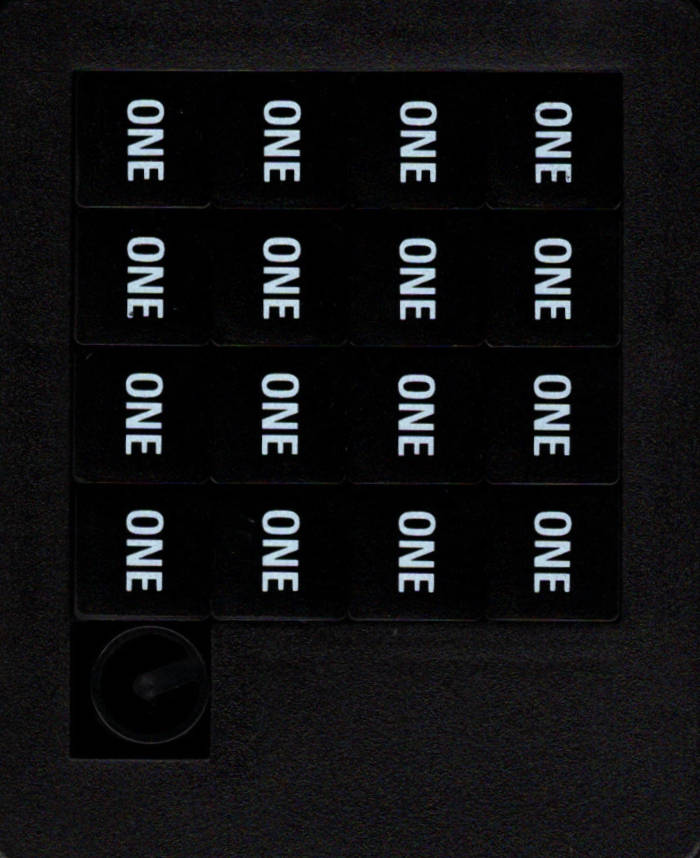
ONE
‘One’ is Dan Grahams version of the classic sliding game. However playing this particular game has only one possible outcome. The multiple consists of sixteen movable squares printed white on black bricks in a black plastic housing.
Second edition of 1000 copies
7.4 x 9 x 0.7 cm
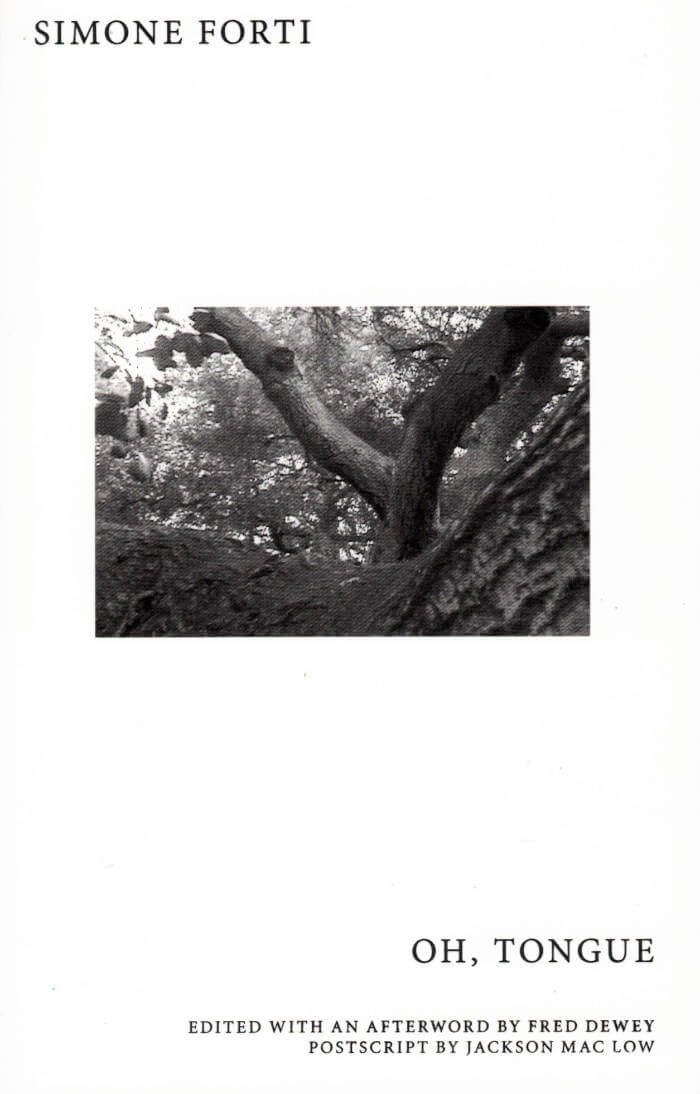
Oh, Tongue (english edition)
A new revised version of the notebook of the legendary American dancer, artist and choreographer Simone Forti in which she shares her poetry as well as her thoughts on dance, the body, writing, the state of the world. A collection of experimental texts, imagined dialogues, news animations and poetic thoughts on life and politics. The book contains an afterword by Fred Dewey and a postscript by poet and Fluxus artist Jackson MacLow.
American dancer and choreographer Simone Forti (born 1935 in Florence, Italy) has been a leading figure in the development of contemporary performance over more than fifty years. Artist, choreographer, dancer, writer, Forti has dedicated herself to the research of a kinesthetic awareness, always engaging with experimentation and improvisation. Investigating the relationship between object and body, through animal studies, news animations and land portraits, she reconfigured the concept of performance and dance. Forti emigrated from Italy with her family via Switzerland to Los Angeles in 1938, where she subsequently studied for four years with choreographer Anna Halprin and has since spent most of her life. She joined the experimental downtown art scene in New York during the emergence of performance art, process-based work and Minimal Art and spent a fruitful time in Rome in the late 1960s, where she used the spaces of L'Attico to study and perform. Her work is seen as a precursor of the famous Judson Dance Theater—a group of artists experimenting with dance, including Trisha Brown, Steve Paxton, and Yvonne Rainer—and Minimal Art, although she prefers to be referred simply as a "movement artist."
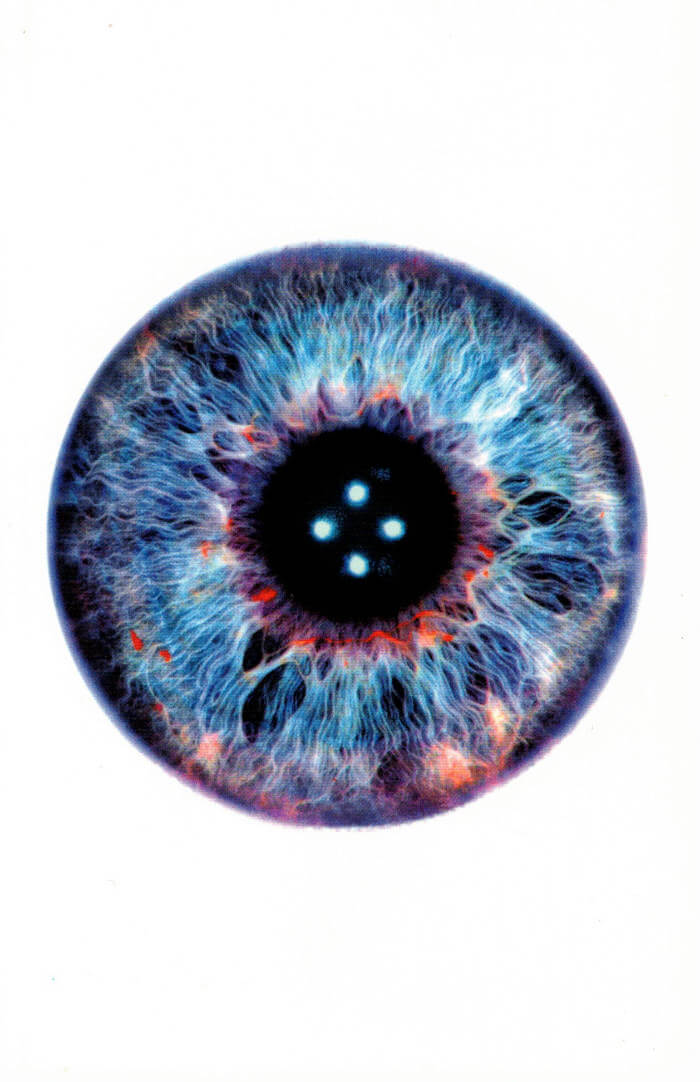
Monitoring Control
Combining art and activism, semiotics and capitalism, art and finance, control and subversion, Monitoring Control by Paolo Cirio represents a critique of the social manipulation imposed by new technologies, while examining the counter-control that individuals can implement to dismantle these forces, sabotage them, and protect themselves.
The book presents a collection of ten texts by Paolo Cirio, artist, hacktivist, one of the most attentive investigators in the artistic field of the effects of the information society. With a text by Bruce Sterling and a conversation between Christian Marazzi, Marco Scotini, and Paolo Cirio himself, it gives visual and verbal form to all the forces that control our existence: new media such as Instagram, Facebook, mugshot websites, Google Street View, etc., highlighting the overt yet covert ways in which these tools control our daily activities and lives.
The volume is accompanied by a gallery of images representing some of the thousands of patents of algorithms collected by Cirio on the web to highlight the tools used on the Internet and by artificial intelligence for surveillance and social manipulation.

Theater, Garden, Bestiary – A Materialist History of Exhibitions
Vincent Normand, Tristan Garcia
This volume both gathers and expands on the results of the research project “Theater, Garden, Bestiary: A Materialist History of Exhibitions” held at ECAL/University of Art and Design Lausanne, and proposes to draft a history of exhibitions sourced from a wide corpus reaching beyond the framework of art institutions. It undertakes a transdisciplinary history, at the nexus of art history, science studies, and philosophy, exploring the role the exhibition played in the construction of the conceptual categories of modernity, and outlines a historiographical model that grasps the exhibition as both an aesthetic and epistemic site.
Contributions by Etienne Chambaud, Elitza Dulguerova, Anselm Franke, Tristan Garcia, Fabien Giraud & Raphaël Siboni, Dorothea von Hantelmann, Yuk Hui, Pierre Huyghe, Sami Khatib, Jeremy Lecomte, Stéphane Lojkine, Rafael Mandressi, Vincent Normand, Peter Osborne, Filipa Ramos, Juliane Rebentisch, João Ribas, Pamela Rosenkranz, Anna-Sophie Springer, Lucy Steeds, Olivier Surel, Etienne Turpin, Kim West, Charles Wolfe.

Postsensual Aesthetics: on the logic of the curatorial
In this original work of aesthetic theory, James Voorhies argues that we live in the shadow of old ways of thinking about art that emphasize the immediate visual experience of an autonomous art object. But theory must change as artistic and curatorial production has changed. It should encompass the full range of activities through which we encounter art and exhibitions, in which reading and thinking are central to the aesthetic experience. Voorhies advances the theoretical framework of a "postsensual aesthetics," which does not mean we are beyond a sensual engagement with objects, but rather embraces the cognitive connections with ideas that unite art and knowledge production. Cognitive engagements with art often begin with publications conceived as integral to exhibitions, conveying the knowledge and research artists and curators produce, and continuing in time and space beyond traditional curatorial frames. The idea, and not just visual immediacy, is now art's defining moment.
Voorhies reframes aesthetic criteria to account for the liminal, cognitive spaces inside and outside of the exhibition. Surveying a wide range of artists, curators, exhibitions, and related publications, he repositions the aesthetic theory of Theodor Adorno, and draws inspiration from Rosalind Krauss and Fredric Jameson, to describe a contemporary "logic of the curatorial." He demonstrates how, even as we increasingly expect to learn from contemporary art, we must avoid an instrumentalist and reductive view of art as a mere source of information. As Voorhies shows through an analysis of two major global exhibitions, dOCUMENTA (13) (artistic director Carolyn Christov-Bakargiev) and Documenta11 (artistic director Okwui Enwezor), and of Ute Meta Bauer's curatorial work at the Centre for Contemporary Art Singapore, it is imperative for artistic research to retain its unique role in the production of knowledge.

Studio Visit
Studio Visit collects two decades of work by Brooklyn-based artist Sara Greenberger Rafferty (born 1978), known for her material transformation of photographs and her use of comedy as an artistic strategy. Organized by material sensibilities around paper, plastic, glass, metal, fabric scraps, and "garbage," Studio Visit rethinks the monograph format, revealing Sara Greenberger Rafferty’s practice through intimate studio documentation, sketches, notes, and other ephemera, punctuated by full-color case studies of major works.
With image descriptions by art historian Kate Nesin and new writing by Kristan Kennedy and Oscar Bedford, as well as reprinted texts by poet Lisa Robertson and media scholar Shannon Mattern, among others, Studio Visitsurveys Sara Greenberger Rafferty's cultural commentary through dynamic and conceptually rigorous art.
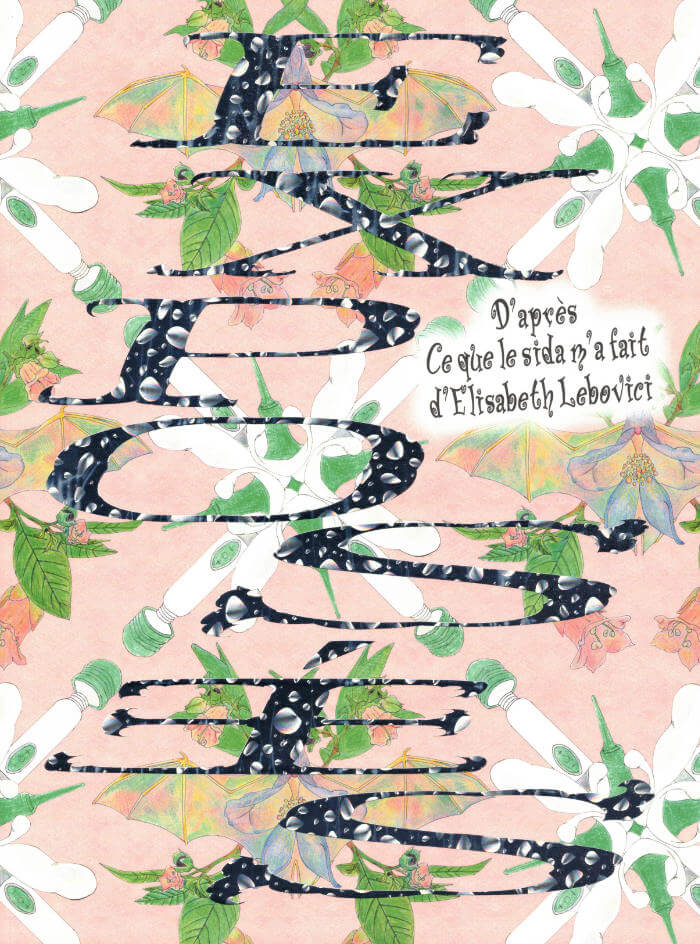
Exposé-es : d'après Ce que le sida m'a fait d'Elisabeth Lebovici
Fonds Mercator, Palais de Tokyo
Ce catalogue qui accompagne l’exposition Exposé·es ne se divise pas en chapitres, mais entrelace les genres et les modalités d’écriture et de documentation, avec des formats variés. Il comprend notamment une multitude de courts entretiens ou écrits autour des pratiques des artistes et de personnes concernées, des essais commandés à des auteur·rices et des séquences d’images, représentant les travaux des artistes de l’exposition, ou documentant des projets artistiques qui ont eu lieu historiquement dans le contexte de ces luttes.
Avec les artistes : Les Ami·es du Patchwork des noms, Bambanani Women’s Group, Bastille, yann beauvais, Black Audio Film Collective, Gregg Bordowitz, Jesse Darling, Moyra Davey, Guillaume Dustan, fierce pussy (Nancy Brooks Brody, Joy Episalla, Zoe Leonard, Carrie Yamaoka), Nan Goldin, Felix Gonzalez-Torres, Hervé Guibert, Barbara Hammer, Derek Jarman, Michel Journiac, Zoe Leonard, audrey liebot, Pascal Lièvre, Santu Mofokeng, Jean-Luc Moulène, Henrik Olesen, Bruno Pélassy, Benoît Piéron, Lili Reynaud-Dewar, Jimmy Robert, Régis Samba-Kounzi & Julien Devemy, Marion Scemama, Lionel Soukaz & Stéphane Gérard, Georges Tony Stoll, Philippe Thomas, David Wojnarowicz
Et les auteur·ices : Clémence Allezard, Cécile Chartrain, Vinciane Despret, Mylène Ferrand, Amandine Gay, Philippe Joanny, Elisabeth Lebovici, Nicolas Linnert, Sylvère Lotringer, Tim Madesclaire, Helen Molesworth, Veronica Noseda, Peggy Pierrot, François Piron, Donald Rodney, Jane Solomon, Jo-ey Tang, Gaëtan Thomas
Design graphique : Roxanne Maillet